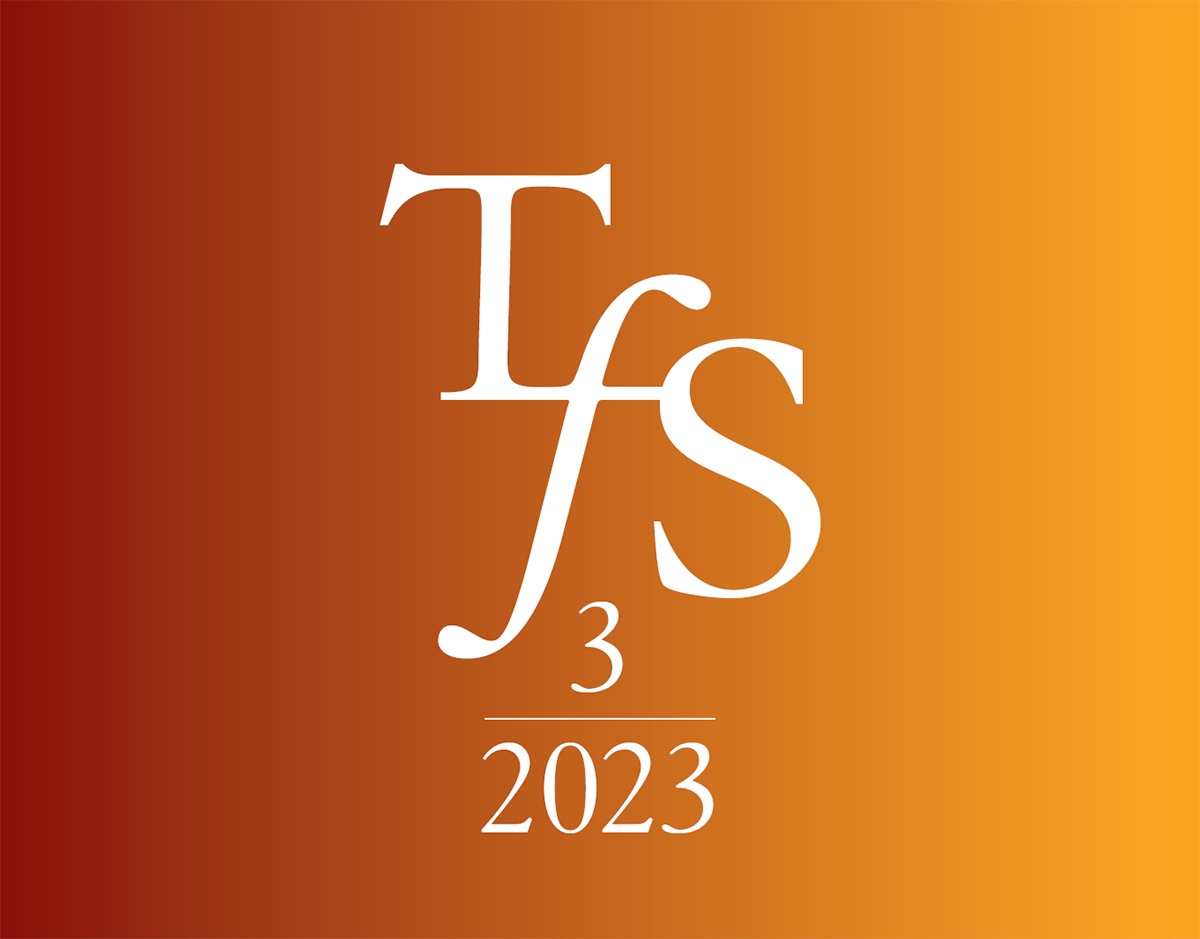- Project period
- 2022 - 2025
- Project employer
- Ministry of Culture and Equality
- Project nr.
- 10703.00
- Project leaders
- Mari Teigen , Ragni Hege Kitterød
- Status
- Ongoing
CORE Survey 2022 – The Equality Survey is a survey examining the population’s views on various issues related to gender equality.
Documentation Report
The Documentation Report for Core Survey 2022 – The Equality Survey explains the background for the survey and how it is structured. This is the first time CORE is conducting a survey on the population’s attitudes and perceptions concerning gender equality. The plan is to repeat the survey at regular intervals to study changes in opinions and beliefs on various gender equality issues among the general population as a whole and in different sub-groups.
The CORE Survey 2022 Documentation Report is available here (in Norwegian)
Fewer men than women believe women are subjected to discrimination in working life
This article examines the population’s opinions and beliefs of the scope of gender discrimination. We survey the general population’s beliefs on whether women (or men) suffer differential treatment in the labour market or not, based on a question asked by Norsk Monitor since 1993 and a question from CORE Survey 2022 – The Equality Survey. The question in CORE Survey 2022 is based on the Norsk Monitor question, but it has been expanded to include the option to respond that men are currently subjected to discrimination. We find that the formulation of the question is significant as the picture becomes more nuanced when the question also accounts for discrimination against men. There are slightly more men than women who believe that men are subjected to discrimination. However, for both questions, the most common response is that women are subjected to discrimination, although this view is much more common among women than men.
.png)

Major agreement on equal responsibilities for family and care
This article examines the general population’s attitudes towards the equal distribution of care tasks within families. The analysis is based on two questions asked in CORE Survey 2022 – The Equality Survey. One question address opinions about the responsibilities of men and women regarding home and family. The other question addresses opinions about the responsibilities of men and women with regards to financial caring for the family. Our analyses show strong support in favour of an equal family model, while a significant minority supports more traditional approaches, with men making up most of the latter. There is a need for further analysis of the factors that explain the support for a more traditional family model. Unsurprisingly, the most significant factor here is a negative correlation between support for a traditional family model and a generally positive attitudes towards of gender equality.
Private housekeeping services – a solution for time pressures during the childhood phase?
This article examines the general population’s use of housekeeping services based on the CORE Survey 2022 – The Equality Survey. We analyse parents who live together and who have at least one child below the age of 20 in their household. The question about purchasing help to clean the home was asked as follows: “Do you or does your household currently make use of any kind of paid, private help to clean your home or for other household chores? This does not include municipal household aid”. The analyses show that the purchase of housekeeping services is not very widespread, which is in line with findings of past studies. About 10 percent of families make use of housekeeping services, but this is more common among families that have high incomes, as well as those who live in the Oslo area. More use of housekeeping services in the Oslo area may be due to the higher availability of such services, as well as to norms changing where private housekeeping services are more common. However, also in the Oslo area most people clean the house themselves.


Tidsskrift for samfunnsforskning (Journal for Social Research): Support for Gender Equality: Is the Consensus starting to Crack?
This article examines whether attitudes regarding the equal family model have become more polarised in recent decades, as highlighted by an increased awareness of trends towards polarisation in public debate in general, as well as more recent anti-gender mobilisation in the form of recognition and appreciation of traditional gender roles. We explore this question with the aid of three data sources: Norsk Monitor, the International Social Survey Programme (ISSP) and CORE Survey 2022 – The Gender Equality Survey.
Norwegian Journal of Working Life Studies (idunn.no): Mild coercion, broad support: An analysis of attitudes towards sharing parental leave among fathers and mothers
The distribution of parental leave between women and men is the subject of much debate, but thus far there has been little examination of mothers’ and fathers’ opinions on different models for sharing the leave. In this survey, we examine opinions on different models for leave sharing among mothers and fathers with children under 20 years of age, as well as how support for different sharing models co-vary with demographic and socioeconomic characteristics and attitudes towards gender equality. We find strong support among both fathers and mothers for the idea that parts of the parental leave should be reserved for fathers, but fathers more often than mothers tend to express a desire to reserve half of the leave for fathers/themselves. Thus, when it comes to opinions on parental leave, fathers can be considered more egalitarian than mothers, despite men being generally less egalitarian than women.


Who is being discriminated against? Perceptions of discrimination on various grounds in Norwegian society
This article examines what the population believes about discrimination on various grounds in Norway. The analysis is based on the question, "How widespread or rare would you say each of the following forms of discrimination is in Norwegian society? Discrimination based on (1) age (2) gender (3) ethnic background (4) sexual orientation (5) disability." The results show that the highest percentage say that discrimination based on ethnic background is prevalent in Norway, while the lowest percentage say that discrimination based on sexual orientation is prevalent. Women are more inclined to say that discrimination is prevalent on all grounds compared to men. For women, there is a general tendency for the percentage believing that discrimination is prevalent to decrease with age, while the opposite is true for men. Thus, there is a much wider gap in perceptions of the prevalence of discrimination between young women and men than there is between older women and men. The inclination to say that discrimination on various grounds is prevalent varies with political affiliation. Generally, voters on the left are more inclined to believe that discrimination occurs than voters on the right.
Should gender equality be further advanced
This article examines the general public's support for gender equality, based on a question about whether they believe that the equality between women and men should be further advanced, has gone far enough, or has gone too far. The question has been included in the election survey since the mid-1980s and is also part of the CORE Survey 2022 - the Equality Survey. We find that the majority, both men and women, believe that gender equality should be further advanced, but support is significantly lower among men compared to women. However, men more often believe that gender equality has gone far enough, or has gone too far, compared to women. Younger men less frequently than older men believe that gender equality should be further advanced, and more often think it has gone far enough or too far. Among women, there is no clear correlation between age and support for further advancing gender equality. The fact that younger men less frequently than older men say that gender equality should be further advanced may be because many young men perceive that we have now achieved equality between women and men. It may also reflect that the gender equality debate has tended to be women-centered.


Support for diversity in gender identities and the introduction of a third legal gender category
This article examines the public's support for diversity in gender identities and whether a third legal gender category should be introduced. Current debates about diverse gender identities and the introduction of a third legal gender category raise questions about how support varies for issues on the periphery of the traditional gender equality debate, and for issues that concern matters other than those that have been central to the gender equality debate in the decades. We find that there is significantly greater support for diversity in gender identities, i.e., acceptance that some choose to identify as something other than "woman" or "man," than for the introduction of a third legal gender category. At the same time, we find that there is lower support for these questions than for the more “traditional” gender equality issues and significantly greater disagreement. However, the response patterns follow familiar tracks. Women are more likely than men to support diversity in gender identities and the introduction of a third legal gender category; those with higher education are more positive than those with shorter education; and those who support left-wing parties are more positive than those supporting the right-wing parties. The age profile, however, differs somewhat from the patterns on some other questions, in that younger individuals are more likely than older ones to support diversity in gender identities and a third legal gender category. We interpret this as an indication that these are issues that have been more present for the younger age groups.
Attitudes towards gender equality and gender roles among men and women in different groups. Analyses of selected questions from the CORE Survey 2022 ‒ The Equality Survey. A report prepared for the Men’s Equality Commission (in Norwegian).
This report analyses attitudes towards gender equality in the Norwegian population, based on selected questions from the CORE Survey 2022 ‒ The Equality Survey. The questions map attitudes towards gender equality in politics, working life, the education system, family, and in other areas. For each single question, the answer distribution is shown for the entire population as a whole as well as for men and women separately. In addition, the answers are broken down by age, education, place of residence and political voting. The report is prepared on behalf of the Men’s Equality Commission.
Value-oriented Focus on Gender Equality
How is the value-oriented focus on gender equality in Norway progressing? Who are the driving forces and who are the obstacles? This note sheds light on the current state of more fundamental attitudes and views on gender equality among the Norwegian population in various contexts: society at large, public discourse, representative democracy, and policy formulation. These are contexts that can be perceived as somewhat abstract, as they are not directly connected to people's everyday lives, but rather to the broader spheres of society and politics. Overall, the Norwegian population is positive towards gender equality, but there are clear differences in how men and women view the matter. These differences are most noticeable among the younger generation and less pronounced among the older folks. In short, it's mainly the young guys who are a bit behind, whereas the young women are taking the lead in promoting fundamental values and norms for gender equality in both society and politics.
Gender quota in politics - a widespread, but controversial measure
This article examines the population's attitudes towards gender quotas in politics based on data from the CORE Survey 2022 – Gender Equality Survey. The results show that there is considerable disagreement on this issue. There are 41 percent who support quotas in politics and 32 percent who are against it. Gender differences are significant, with 54 percent of women supporting quotas, while only 30 percent of men share the same view. Among women, there are more supporters of gender quotas in politics than opponents, while among men, there are more opponents than supporters of this. It is also worth noting that a relatively large number of people answer "neither/nor" or "don't know" to this question. Among women, support for gender quotas in politics is highest among the middle-aged (30-44 years and 45-66 years) and lowest among the youngest. Among men, the oldest differ clearly from the youngest as they are more positive towards quotas. Party preferences are also important, with supporters of the Red and Socialist Left parties being more positive, while supporters of the Conservative, Progress, and Christian Democratic parties are more sceptical. One reason why the population is quite divided on the issue of quotas in politics may be that party politics is perceived as fairly equal and gender balanced, and therefore rules regulating gender composition may seem unnecessary.
Great disagreement about gender quota in corporate boards
This article examines the population's attitudes towards gender quotas in corporate boards based on data from the CORE Survey 2022 - Gender Equality Survey. The results show that there is significant disagreement on this issue. 44 percent support gender quotas while 31 percent are against it. Gender differences are evident, with 58 percent of women supporting quotas compared to only 31 percent of men. The analysis also includes age, education, place of residence, and party preference, and shows that younger are less inclined to support quotas than older people and that highly educated women are more inclined to support quotas than women with shorter education. Political divides are evident, with voters for the Red Party, the Socialist Left Party and the Green Party being more in favour, while the Centre Party, the Christian Democratic Party, the Conservative Party and the Progress Party voters are more sceptical. The survey confirms that there is a high degree of disagreement in attitudes towards gender quotas in corporate boards. Previous surveys among Norwegian top executives have shown relatively high support for quotas in corporate boards, while this survey demonstrates a greater degree of disagreement.
What do people think of when they hear the word equality?
Participants in the CORE Survey 2022 were asked the question "what do you think of when you hear the word equality?", and were asked to respond in their own words. 3448 respondents chose to write a short or longer answer. In this note, we analyze what they answered. We found that most answered descriptively, and to a striking degree used the same words. We were surprised at how many strongly linked the concept of equality to work and pay, among other things, we found that the phrase "equal pay for equal work" occurred in more than one in ten answers. Another feature worth noting was that the word equality seems to have a slightly different meaning for the older than for the younger. The oldest cohorts, and especially the oldest women, very often gave answers that were about work and pay. The younger cohorts were more inclined to point to several grounds of discrimination, and said that equality involves equal treatment regardless of gender, ethnicity, religion, and sexual orientation. Men more often than women gave negative answers, and especially the young men were concerned that one must distinguish between equal opportunities and equal results when talking about what equality means.
Deltakere
- Miriam Evensen
- Audun Fladmoe
- Anne Skevik Grødem
- Stine Hesstvedt
- Marjan Nadim
- Liza Reisel
- Sara Seehuus
- Signe Bock Segaard
- Mari Teigen
- Sebastian Teigen Nygård
